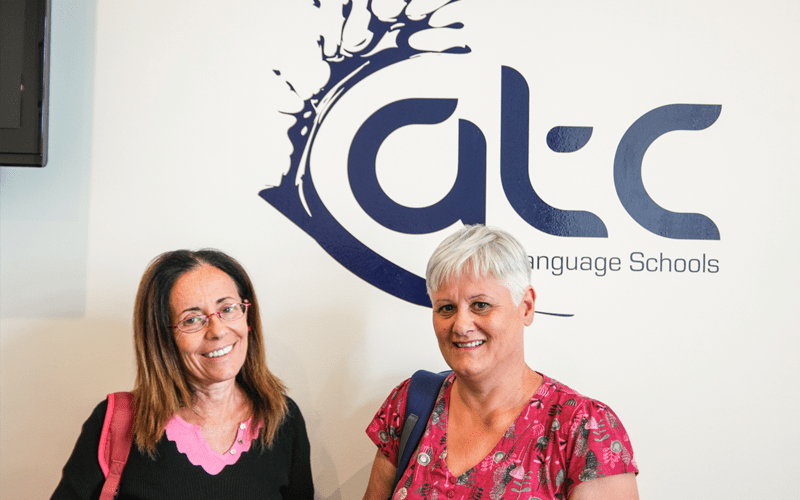Inclusive Practices in the Language Classroom
Locations: Bray and Dublin
Focussed Discussions
30 Certified Hours Per week
Experienced Teacher Trainers
Contact us
inclusive practices in the language classroom
The aim of this programme is to introduce language teachers to the more common neuro-diversities, and the additional needs teachers may encounter in their student groups. The course explores the challenges faced by language learners with ASD (autism spectrum disorder), ADHD (attention deficit hyperactivity disorder), dysgraphia, dyslexia and dyspraxia, and considers the challenges that may be presented to the teacher and class as a whole. It helps teachers understand the motivation for students’ behaviours, and provides an awareness of the stumbling blocks the communicative language classroom can present to neurodiverse or differently abled students. It offers teachers easy-to-implement, communicative ideas which will benefit language students of all abilities and aptitudes. The course is practical and aims to equip teachers with simple, creative tools, ideas and templates to open up the language learning experience and make it more interactive and inclusive for all students.
The aim of this course is to help language teachers to:
- develop a greater awareness of challenges faced by neurodiverse students when learning a language,
- adapt target language materials for use with students,
- build student supports into their lesson planning to ensure greater access and inclusion,
- implement changes in their teaching to foster a more inclusive language classroom.
ATC’s 1 week Inclusive Practices in the Language Classroom course can be combined with another Teacher Training and Development course or a General English course, to form a 2-week programme, contact us for details.
For teachers applying through the Erasmus Plus scheme the OID for ATC Language Schools is E10365795.
For details of this course on the European School Education Platform (ESEP) please see – ATC Project Based Learning in the Digital Age ESEP.
For more course choices please see the link – ATC Teacher Training & Development.
ATC Dublin
Maximum group size: 15
Minimum English Level: B2
Applicable for Erasmus+ KA1
Course Dates 2025:
Monday 7th to Friday 11th July
Monday 28th July to Friday 1st August
*Courses can also be organised year-round for closed groups in our Dublin City Centre or Bray school.
What you get
20 hours tuition + 10 hours project work per week
Lesson resources included
End-of-course certificate
Interactive collaboration with other teachers
Access to ATC's Teacher's Platform
Join an optional cultural excursion
Who is it for?
This Inclusive Practices in the Language Classroom course is suitable for English language teachers and teachers of foreign languages, teaching to secondary, adult or vocational students, and teachers who want to create a more inclusive learning environment. This course will benefit both experienced and novice teachers who want to enhance their teaching practices.
The course is applicable to native and non-native English-speaking teachers. Applicants should have a minimum B2 level of English, as outlined in the Common European Framework of Reference for Languages. If you would like to confirm your level, please contact us.
For teachers applying through the Erasmus Plus scheme the OID for ATC Language Schools is E10365795.
Student Reviews
The ATC Preparatory Certificate in ELT was the best possible start to my new career as an English teacher. I knew that ATC is one of the best language schools in Ireland and having the opportunity to learn from their best teachers was very important when I registered. I would recommend the course to every English teacher.
Course content
The course provides a background of understanding and a menu of options for teachers to choose from, depending on their students’ needs and preferences. Participants explore dyslexia, ASD, ADHD, dysgraphia, dyscalculia, dyspraxia, and audio/visual impairment, getting an overview of what the conditions entail, and considering the challenges they pose for students in the language classroom specifically.
Each day, a different neurodiversity is presented, and teachers consider ways to adapt their lesson materials and approaches to support their students. The course material provides practical ideas and suggestions for teachers to consider and evaluate.
Teachers then work together to develop a ‘toolkit’ of activities and practices which will help them approach teaching the language skills, grammar and vocabulary in ways that make them accessible to all learners.
From Day 1 participants are supported to prepare a lesson, learning support or activity which they would like to use with their students. They develop this throughout the week as they engage with a variety of similar activities and suggestions, which they consider, evaluate and discuss. Teachers are helped to develop an awareness of the challenges a ‘standard’ classroom can present to neurodiverse learners, and begin to plan small changes they can implement to make their classrooms more inclusive.
On the final day of the course participants present to their peers the activity/support of their choice, giving and receiving feedback on its benefits and ways to differentiate and adapt it.
A library of resource material related to each day’s work is available to the teachers.
Course Modules: Learning Outcomes By the end of this course, participants should be better able to: By the end of this course, participants will have: Teaching Style The Inclusive Practices in the Language Classroom training course combines course input from ATC’s trainers with group discussion and collaborative work. Teachers are given access to further resources on ATC’s Platform for Teachers, ATC Connect. Certificated hours The course is run over one week and consists of 20 hours of onsite training with course trainers plus 10 hours of self-directed project work. At the end of the course, teachers will receive an ATC Language Schools’ Certificate of Attendance for the 30-hour course: Inclusive Practices in the Language Classroom For teachers applying through the Erasmus Plus scheme the OID for ATC Language Schools is E103657.
Timetable

Inclusive Practices in the Language Classroom (pdf factsheet)
YOUR ENGLISH COURSE WITH atc...
We Have The Right Course for You!
Choose your course with ATC, select from our adult courses, junior courses or teacher training and development…


